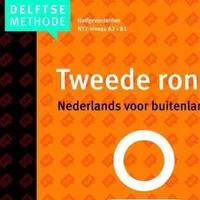Les 22 De Gouden Eeuw
课|的|黄金|时代
||Goldene|Jahrhundert
||Golden|Age
||de oro|Edad
Lektion 22 Das Goldene Zeitalter
Lesson 22 The Golden Age
Lección 22 La Edad de Oro
Lezione 22 L'età dell'oro
Ders 22 Altın Çağ
第22課 黃金時代
第22课 黄金时代
In de 17de eeuw ging het de Hollanders voor de wind.
在|17世纪|17|世纪|去|它|荷兰人|荷兰人|在|风|风
|||||||Holländer|||Wind
||||"was going"|||the Dutch|"in"||
Im 17. Jahrhundert blühten die Niederländer auf.
In the 17th century, the Dutch prospered.
在17世纪,荷兰人过得非常顺利。
Die eeuw heet daarom ook wel de Gouden Eeuw.
那个|世纪|称为|因此|也|好像|这个|黄金的|世纪
die||||||||
因此,这个世纪也被称为黄金时代。
In de 16de eeuw was het land nog voornamelijk moeras, maar eind 17de eeuw was het een van de rijkste landen van de wereld.
在|第|16|世纪|是|它|国家|仍然|主要|沼泽|但是|到了|17|世纪|是|它|一个|的|最|富有|国家|的|最|世界
||||||||hauptsächlich|Sumpf||||||||||reichsten||||
||||||||mainly|swamp||||||||||richest||||
In the 16th century, the country was mainly marshland, but by the end of the 17th century, it was one of the richest countries in the world.
在16世纪,这个国家还主要是沼泽,但到17世纪末,它已成为世界上最富有的国家之一。
Hoe verklaren we deze snelle groei?
如何|解释|我们|这|快速的|增长
|erklären|||schnelle|Wachstum
|explain|||rapid|growth
How do we explain this rapid growth?
我们如何解释这种快速增长?
Volgens Johan Cruijff, Nederlands bekendste voetballer, heeft elk nadeel z'n voordeel.
根据|约翰|克鲁伊夫|荷兰的|最著名的|足球运动员|有|每个|劣势|他的|优势
|Johan|Cruijff||bekannteste|Fußballer|||||
|According to Johan|Cruyff||most famous|footballer|||disadvantage||advantage
According to Johan Cruijff, the most famous Dutch football player, every disadvantage has its advantage.
根据荷兰最著名的足球运动员约翰·克鲁伊夫,每个缺点都有其优点。
En dat geldt niet alleen voor voetballen.
而且|那||不|仅仅|对于|足球
||applies||||playing soccer
这不仅适用于足球。
Al dat water was een groot nadeel maar de Hollanders leerden wel boten bouwen.
所有|那|水|是|一个|大|缺点|但是|这些|荷兰人|学会了|确实|船|建造
||||||||||lernten||Boote|
|||||big|disadvantage||||learned||boats|
All that water was a big drawback but the Dutch did learn to build boats.
所有的水都是一个大缺点,但荷兰人学会了造船。
Dat lag voor de hand, aangezien de rivieren ideale transportwegen waren.
那|显而易见|对于|这|手|因为|这|河流|理想的|运输路线|是
||||||||ideale|Transportwege|
That|||||since||||transport routes|
This was obvious, since the rivers were ideal transportation routes.
这很显而易见,因为河流是理想的运输路线。
Ze ontwikkelden nieuwe technieken en vervaardigden betere kaarten, snellere schepen, kijkers en andere instrumenten.
他们|开发了|新的|技术|和|制造了|更好的|地图|更快的|船|望远镜|和|其他的|工具
|entwickelten||Techniken||verfertigten|bessere|Karten|schnellere|Schiffe|Ferngläser|||Instrumente
|developed|new|techniques||produced|better|maps|faster||telescopes|||instruments
Sie entwickelten neue Techniken und stellten bessere Karten, schnellere Schiffe, Sichtgeräte und andere Instrumente her.
They developed new techniques and manufactured better maps, faster ships, viewers and other instruments.
他们开发了新技术,制作了更好的地图、更快的船只、望远镜和其他工具。
Nieuwe kennis en vaardigheden verspreidden zich snel De Hollanders konden de zee op.
新的|知识|和|技能|传播|自己|快速|荷兰人|荷兰人|能够|这|海|上
|||Fähigkeiten|verbreiteten||||||||
|knowledge||skills|spread quickly||||||||
New knowledge and skills spread quickly The Dutch could go to sea.
新的知识和技能迅速传播,荷兰人能够出海。
Eerst bleven ze binnen Europa.
首先|留在|他们|在内部|欧洲
|blieben|||
First, they stayed within Europe.
最初,他们只在欧洲内活动。
Ze kochten graan in Polen en Duitsland en hout in Scandinavië.
他们|买了|谷物|在|波兰|和|德国||木材|在|斯堪的纳维亚
|kauften|Getreide||Polen||||||Skandinavien
|bought|grain||||||wood||Scandinavia
They bought grain in Poland and Germany and wood in Scandinavia.
他们在波兰和德国购买谷物,在斯堪的纳维亚购买木材。
Dat verkochten ze in Zuid-Europa, waar ze zout en wijn kochten.
那个|卖|他们|在|||在那里|他们|盐|和|葡萄酒|买
|verkauften|||||||Salz|||
|sold|||||||salt||wine|bought
They sold that in Southern Europe, where they bought salt and wine.
然后他们在南欧出售这些商品,换取盐和葡萄酒。
Spoedig gingen ze de wereldzeeën op.
很快|他们去|他们|这些|世界海洋|在
||||Weltmeere|
Soon||||the world's oceans|
Soon they took to the world's seas.
不久,他们便开始航行于世界海洋。
De handel op Afrika en Azië begon met peper en andere kruiden. Later kwamen daar katoen, zijde en goud bij, en nog later koffie, thee en cacao.
这|贸易|在|非洲|和|亚洲|开始|用|胡椒|和|其他|香料|后来|来了|那里|棉花|丝绸|和|黄金|加入|和|还|更晚|咖啡|茶|和|可可
|||||Asien|||Pfeffer|||Gewürze||||Baumwolle|Seide||||||||||Kakao
||||||||pepper|||spices||||cotton|silk||gold||||||tea||cocoa
|||||||||||||||algodón|||||||||||
Trade to Africa and Asia began with pepper and other spices Later cotton, silk and gold were added, and still later coffee, tea and cocoa.
对非洲和亚洲的贸易始于胡椒和其他香料。后来又增加了棉花、丝绸和黄金,之后还有咖啡、茶和可可。
Langs de routes kwamen handelsposten om vers voedsel in te slaan en goederen te bewaren.
沿着|这些|路线|来了|商业站|为了|新鲜|食物|进货|以|储存|和|商品|以|储存
||Routen||Handelsposten|||Nahrung|||||Waren||lagern
||routes||trading posts||||to store||stock up||goods||to store
Trading posts appeared along the routes to stock fresh food and store goods.
沿着这些路线建立了贸易站,以储存新鲜食品和商品。
Als er vraag was werd alles weer verkocht.
如果|有|问题|在|被|一切|再次|卖掉了
If there was demand, everything was sold again.
如果有需求,所有的东西都会被再次出售。
Met deze vestigingen, in Zuid-Afrika, India, Indonesiё en Zuid-Amerika, legden de Hollanders de basis voor hun koloniale rijk.
以|这些|分支机构|在|||印度|印度尼西亚|和|||建立了|这个|||基础|为了|他们的|殖民的|帝国
||Niederlassungen||||Indien|||||legten|||||||kolonialen|
||With these outposts, in South Africa, India, Indonesia, and South America, the Dutch laid the foundation for their colonial empire.||||India|Indonesia||||||||foundation|||colonial|empire
With these settlements, in South Africa, India, Indonesia and South America, the Dutch laid the foundation for their colonial empire.
通过在南非、印度、印度尼西亚和南美的这些据点,荷兰人奠定了他们殖民帝国的基础。
Ze verdienden goed, zoals je kunt zien aan de huizen van de kooplui.
他们|赚得|好|如同|你|能|看见|从|这些|房子|的|这些|商人
|verdienten|||||||||||Kaufleute
|earned|||||||||||merchants
They earned well, as you can see from the merchants' houses.
他们赚了很多钱,正如你可以从商人的房子中看到的那样。
In Amsterdam, maar ook in Middelburg, Delft en Hoorn.
在|阿姆斯特丹|但是|也|在|米德尔堡|代尔夫特|和|霍恩
|||||Middelburg|||Hoorn
|||||Middelburg|||Hoorn
在阿姆斯特丹,也在米德尔堡、代尔夫特和霍恩。
Over de hele wereld hangen in musea de schilderijen die ze van zichzelf lieten maken.
在|这|整个|世界|悬挂|在|博物馆|这些|画作|那些|他们|从|自己|让|制作
||||||Museen||Gemälde||||||
||||||museums||paintings|||||let|
All over the world, the paintings they commissioned of themselves hang in museums.
在世界各地的博物馆里挂着他们自己制作的画作。
Immigratie heeft een grote bijdrage geleverd aan de ontwikkeling van het land.
移民|已经|一个|大的|贡献|提供|对|这个|发展|的|这个|国家
||||Beitrag|||||||
Immigration||a||contribution|contributed to|||development|||
移民对国家的发展做出了很大贡献。
In die tijd kwamen veel vluchtelingen en immigranten naar Nederland.
在|那个|时间|来了|很多|难民|和|移民|到|荷兰
|||||Flüchtlinge||||
||time|||refugees||immigrants||
那时,许多难民和移民来到荷兰。
Protestanten uit België en Frankrijk, joden uit Spanje en Portugal.
新教徒|来自|比利时|和|法国|犹太人|来自|西班牙|和|葡萄牙
Protestanten|||||Juden||||Portugal
Protestants|||||Jews||||Portugal
来自比利时和法国的新教徒,来自西班牙和葡萄牙的犹太人。
Vaak met een goede opleiding en dikwijls ook met geld.
经常|通过|一|好的|教育|和|常常|也|用|钱
||||||oft|||
||||education||often|||
Often with a good education and often with money.
通常有良好的教育,往往还有资金。
Hun komst stimuleerde het maatschappelijk, economisch en geestelijk leven.
她们的|到来|刺激了|这个|社会|经济|和|精神|生活
|Kommen|stimulierte|||||geistig|
|arrival|stimulated||social|economic||spiritual|
Their arrival stimulated social, economic and spiritual life.
他们的到来刺激了社会、经济和精神生活。
Op de vraag hoe Holland zich zo snel heeft kunnen ontwikkelen zou je dus kunnen antwoorden: dankzij het water en dankzij de immigranten.
在|这个|问题|如何|荷兰|自己|如此|快速|已经|能够|发展|将会|你|因此|能够|回答|多亏了|这个|水|和|多亏了|这个|移民
||||||||||entwickeln||||||||||||
||question||||so||||develop||||||||||||
对于荷兰如何能够如此快速发展这个问题,你可以回答:多亏了水和移民。
SENT_CWT:AFkKFwvL=3.83 PAR_TRANS:gpt-4o-mini=1.45
zh-cn:AFkKFwvL
openai.2025-01-22
ai_request(all=34 err=0.00%) translation(all=28 err=0.00%) cwt(all=339 err=2.95%)

